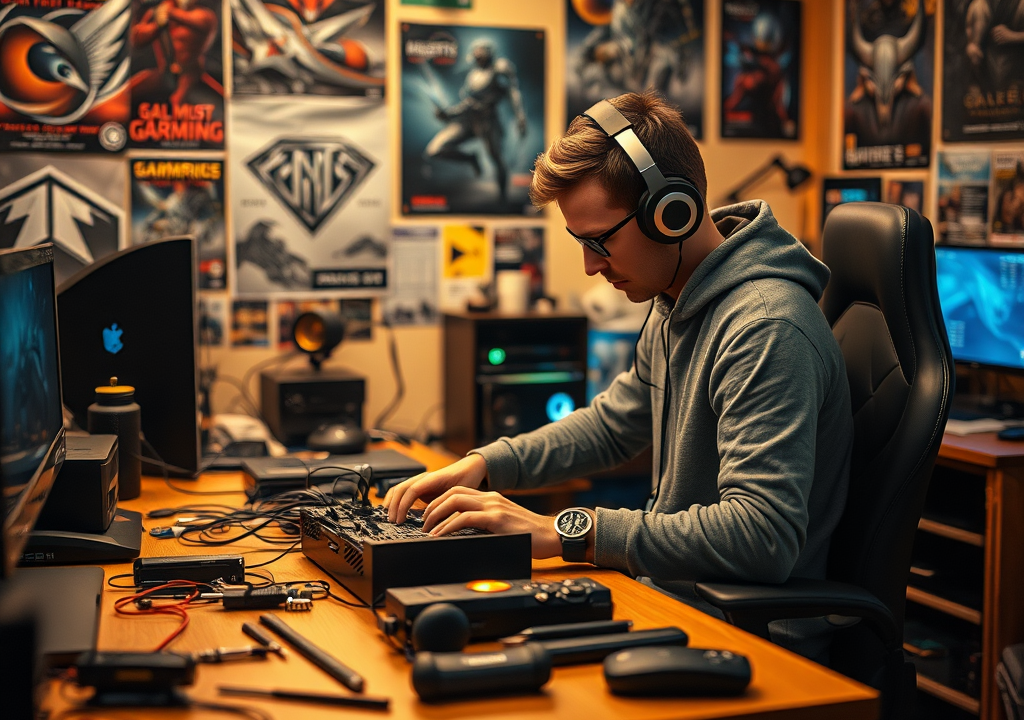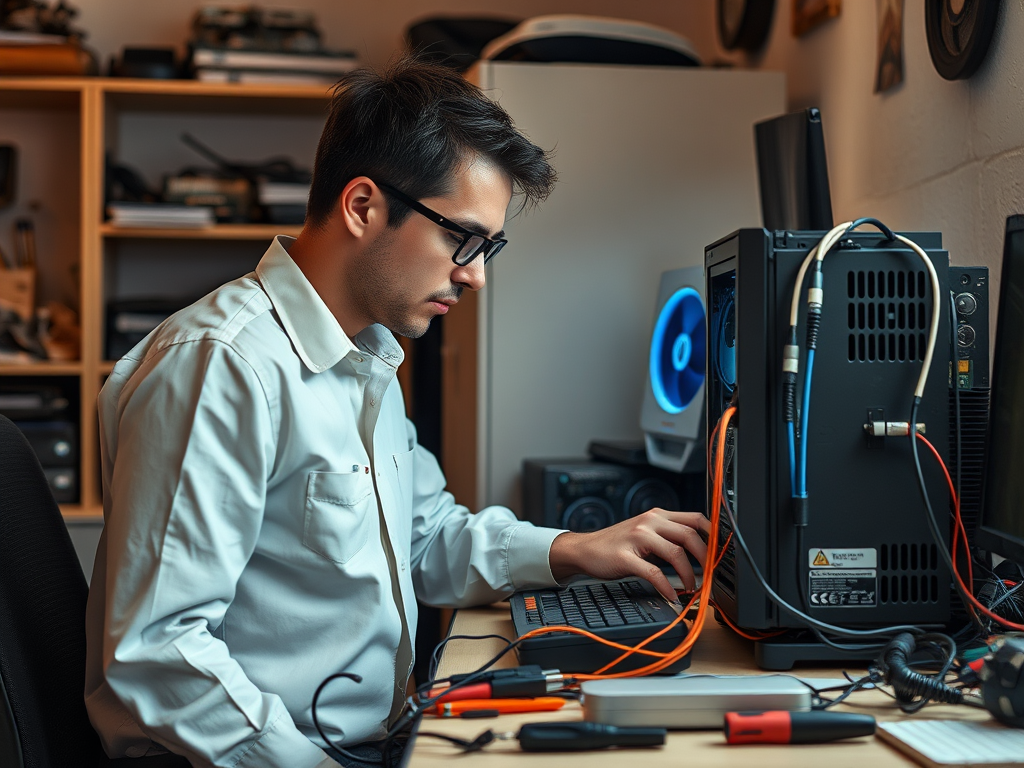In today’s technology-driven world, computers have become an indispensable part of our daily lives. From work to leisure, we rely on these machines for countless tasks. However, encountering a computer problem can be both frustrating and daunting, especially if you’re unsure whether to take matters into your own hands or enlist a professional. Understanding the balance between DIY computer fixes and the necessity of professional help can empower you to make informed decisions. This article delves into common computer issues, the basic fixes you can attempt, and definitive indicators for when it’s time to call in the experts. By the end, you’ll have a clearer perspective on how to approach technical challenges without unnecessary stress.
Ultimately, the choice between addressing a computer issue yourself or seeking professional assistance can often dictate your experience. Tackling a minor problem can provide a sense of accomplishment and save money, but diving into something complex can lead to more severe issues. This article will guide you through various situations, highlighting common problems and the best methods for dealing with them. Plus, we’ll explore how to recognize when you’ve reached your limit and should reach for the phone instead. Having the right knowledge can be both empowering and efficient as you navigate the tech landscape.
Understanding Common Computer Problems

To effectively decide when to fix your computer yourself and when to seek professional help, it’s crucial to understand the common issues that can arise. Each problem requires a varying level of technical skill and equipment to resolve. Some issues may appear minor but can have complex underlying problems, while others might look intimidating yet are simple to fix. By arming yourself with knowledge, you can better navigate these challenges. Below are several common computer problems you might encounter:
- Slow system performance
- Frequent crashes or freezes
- Startup issues
- Peripheral malfunctions (like keyboards or mice)
- Software errors
Basic DIY Fixes

Many computer problems are straightforward and can be addressed with some basic troubleshooting steps. Many users may not realize that several common issues can often be resolved without any specialized skills. Here are a few practical tips that can help you solve some of these minor issues:
Often, hardware malfunctions can be fixed without the need for professional intervention. Here are a few tips for identifying and fixing common hardware issues:
- Check Power Connection: Ensure your computer is plugged in and the power source is functioning.
- Inspect Peripheral Devices: Disconnect and reconnect devices like keyboards, mice, and monitors.
- Listen for Beep Codes: If your computer is beeping upon startup, each beep code typically corresponds to a specific hardware issue.
| Issue | DIY Fix | When to Call Professional |
|---|---|---|
| Computer won’t start | Check power source and connections | Internal damage suspected |
| Software crashes | Update software and drivers | Persistent issues or data loss |
| Loud fan noise | Clean dust from vents | Fan replacement needed |
In addition to these hardware fixes, software issues often require different kinds of troubleshooting techniques. For example, running antivirus software can quickly address many malware-related issues. Updating your drivers or uninstalling problematic programs might even lead to significant performance improvements. Keeping your system clean and well-maintained can go a long way in preventing software errors, and understanding the basics can help demystify the process.
When to Call a Professional
While many issues can be resolved independently, some scenarios necessitate professional assistance. Recognizing these cases can save you time and prevent further damage to your system. Attempting to fix complex problems without the right expertise can sometimes lead to additional complications, which can be costly and frustrating.
If you encounter certain signs, it may be best to consult a professional. Here are several indicators to watch out for:
- Persistent Hardware Failures: Repeated issues with hardware, such as hard drive crashes, could indicate serious problems.
- Data Recovery Needs: If important files need recovery, professionals have the tools for secure and efficient handling.
- Complex Software Problems: Issues requiring deep software knowledge or advanced troubleshooting methods usually warrant an expert’s intervention.
It’s also essential to consider the financial implications of DIY versus professional help. While DIY fixes might seem like an attractive option to cut costs, they can lead to higher expenses in the long run if mistakes are made. Thus, weighing the costs of specialized tools versus hiring a professional should be part of the decision-making process.
Conclusion
Making the decision between DIY fixes and professional help involves weighing both technical capability and the complexity of the issue. On one hand, the sense of achievement from solving a problem yourself is rewarding and offers a chance to learn. On the other, the consequences of an unsuccessful fix can lead to wasted time and increased expenses. Knowing when to step in versus when to seek assistance can lead to better outcomes and potential cost savings, ensuring that you can take full advantage of your computer without unnecessary hassle.
Frequently Asked Questions
- What are some easy DIY fixes for a slow computer? Clean up unnecessary files, close unused programs, and consider upgrading hardware like RAM.
- When is it too risky to attempt a DIY fix? If you’re dealing with internal hardware that could damage the computer further, it’s usually best to call a professional.
- How much does professional computer repair typically cost? Costs can vary widely, typically ranging from $50 to $150 per hour, depending on the service provided.
- Can I use a software tool to diagnose my computer’s problems? Yes, there are many diagnostic tools available that can help identify software issues, but understand their limits.
- Is it worth learning to fix common computer issues myself? Absolutely! Not only can it save money, but it can also enhance your understanding of technology.





